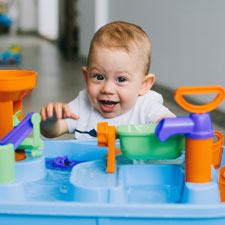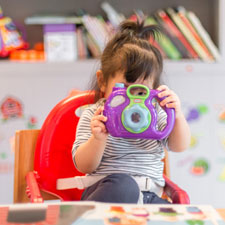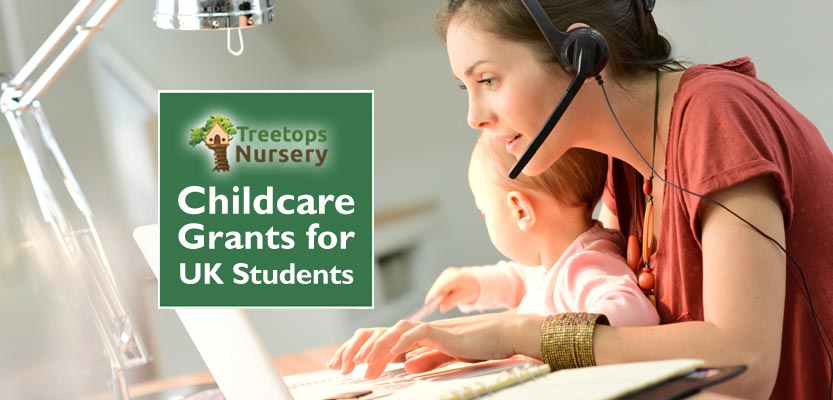
 Are you a parent who wants to continue studying in higher education, but may struggle to afford childcare costs? If so, we have some great news for you. Student Finance England offers eligible students, who are also parents, a generous grant for their child’s childcare. This may allow them to continue with higher education in the knowledge that their child is being looked after by childcare professionals while they study. It can make a real difference, allowing parents to concentrate on studying and potentially increase household income once they graduate their courses.
Are you a parent who wants to continue studying in higher education, but may struggle to afford childcare costs? If so, we have some great news for you. Student Finance England offers eligible students, who are also parents, a generous grant for their child’s childcare. This may allow them to continue with higher education in the knowledge that their child is being looked after by childcare professionals while they study. It can make a real difference, allowing parents to concentrate on studying and potentially increase household income once they graduate their courses.
Today, we’ll take you through the rules around eligibility for the childcare grant and explain how much is available.
The childcare grant for students is in addition to other student finance.
Eligibility Rules for Student Parents
 To be eligible, the following rules apply:
To be eligible, the following rules apply:
- The parent’s child(ren) must be under the age of fifteen, or under seventeen if they have special educational needs.
- The child(ren) concerned must be financially dependent on the applicant.
- The student/parent also has to be eligible for undergraduate student finance based on household income (even if they don’t claim it).
- They can’t already be receiving a postgraduate loan.
- They must be a permanent UK resident.
- They must be studying full time.
- They, or their partner, must not also be claiming Tax-Free Childcare or the childcare element of Working Tax Credit or Universal Credit.
- They or their partner must not be in receipt of childcare funding from the NHS.
A few rules also apply in relation to the childcare provider that receives the funding:
- The childcare provider cannot be related to the applicant or child(ren) if the childcare provision is at home.
- They should be officially recognised in the UK as a childcare provider, i.e. be registered with Ofsted or on the General Childcare Register.
The childcare grant does not need to be paid back.
How Much Do You Get?
 The Childcare Grant for students is worth up to 85% of the cost of your childcare while you’re studying in further education.
The Childcare Grant for students is worth up to 85% of the cost of your childcare while you’re studying in further education.
If you have one child, it can amount to up to £183.75 a week or 85% of your childcare costs if lower. If you have two or more children, then it’s worth up to £315.03 a week or, again, 85% of your childcare costs if that’s lower. You will have to cover the remainder. (Figures are correct for the academic year 2022-23; figures for 2021-22 are £179.62 and £307.95 respectively).
You don’t receive the grant directly; it’s effectively paid to the childcare setting itself (after all, it’s a grant specifically for childcare). Part of the mechanism for payments to the childcare provider is the setting up of a Childcare Grant Payment Service (CCGPS) account. You’ll receive instructions explaining how to set one of these up once your application for the childcare grant has been approved. Then later, Student Finance England sends funds to the account. Once the course has commenced, you will need to approve payments to the childcare provider on a weekly basis. It is then paid directly to them. Should any funds remain once the academic year is complete, this will be returned to Student Finance England.
How You Apply
Applications for Student Childcare Grants are most commonly made online. You apply for a Student Childcare Grant as part of your application for the standard undergraduate student finance (start here).
They can also be made using a paper form if the student finance application has already been made by the time you apply, or in the event that you later claim for an additional child. Once filled in, the paper application can be sent to Student Finance England, PO Box 210, Darlington, DL1 9HJ or alternatively send it to them via your Student Finance Account.
Treetops Nursery Provides High Quality Childcare in Willesden, North West London
 We hope the guide to Childcare Grants for students is useful. If you are a student living or intending to study in North West London, Treetops Nursery can certainly help with your childcare needs while you study. We’re Ofsted registered and are officially a Good Nursery, so your child(ren) will be in good hands. We’re a nursery and pre-school in Willesden, NW10 and are also very near to Harlesden, Kensal Green and Willesden Green. So, we may be very convenient if you are living in Willesden or in North West London, or are studying for an undergraduate course at a college, university, university-linked hospital or other higher education setting in the region — there are many. Please contact us for more details or to apply for a nursery place for your baby or child under five:
We hope the guide to Childcare Grants for students is useful. If you are a student living or intending to study in North West London, Treetops Nursery can certainly help with your childcare needs while you study. We’re Ofsted registered and are officially a Good Nursery, so your child(ren) will be in good hands. We’re a nursery and pre-school in Willesden, NW10 and are also very near to Harlesden, Kensal Green and Willesden Green. So, we may be very convenient if you are living in Willesden or in North West London, or are studying for an undergraduate course at a college, university, university-linked hospital or other higher education setting in the region — there are many. Please contact us for more details or to apply for a nursery place for your baby or child under five:

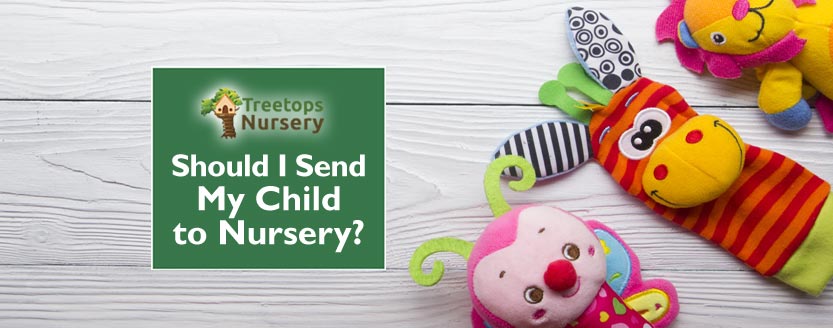
 Many new parents ask themselves whether they should send their baby, toddler or under-five child to nursery/pre-school. What exactly are the benefits to the child? Well, studies have shown that there are clear benefits for children if they attend a good nursery or pre-school in their early years. That good aspect is crucial, though, and as a good nursery ourselves (
Many new parents ask themselves whether they should send their baby, toddler or under-five child to nursery/pre-school. What exactly are the benefits to the child? Well, studies have shown that there are clear benefits for children if they attend a good nursery or pre-school in their early years. That good aspect is crucial, though, and as a good nursery ourselves ( First, though, let’s clarify what makes a good nursery superior to a mediocre one. To give just a few examples, a good nursery will educate children under their care — they don’t simply babysit them because parents are at work. They’ll nurture children’s wellbeing, their learning and their development. They’ll create a learning and development programme that’s tailored to the strengths, weaknesses and interests of each individual child. A good nursery will set personal goals and continually assess the child’s progress, actually in partnership with parents. They’ll help every child to achieve personal bests in every area of a good Early Years curriculum. They’ll also do everything they can to help each child become school-ready by the time they leave, so they can move on seamlessly to Reception Year at primary school. Along the way, a good nursery, like Treetops, will help children in a huge number of ways, becoming more able, more self-confident, more independent, well-mannered, knowledgeable, aware of what’s right and wrong, able to socialise with others in an appropriate way — and so much more.
First, though, let’s clarify what makes a good nursery superior to a mediocre one. To give just a few examples, a good nursery will educate children under their care — they don’t simply babysit them because parents are at work. They’ll nurture children’s wellbeing, their learning and their development. They’ll create a learning and development programme that’s tailored to the strengths, weaknesses and interests of each individual child. A good nursery will set personal goals and continually assess the child’s progress, actually in partnership with parents. They’ll help every child to achieve personal bests in every area of a good Early Years curriculum. They’ll also do everything they can to help each child become school-ready by the time they leave, so they can move on seamlessly to Reception Year at primary school. Along the way, a good nursery, like Treetops, will help children in a huge number of ways, becoming more able, more self-confident, more independent, well-mannered, knowledgeable, aware of what’s right and wrong, able to socialise with others in an appropriate way — and so much more. When a child gets a good educational grounding during their early years, their behaviour around others is also seen to improve, with better self-regulation, less problems with peers and fewer emotional issues. A 2002 study (Sammons et al.) found that the benefits could be seen from as young as two.
When a child gets a good educational grounding during their early years, their behaviour around others is also seen to improve, with better self-regulation, less problems with peers and fewer emotional issues. A 2002 study (Sammons et al.) found that the benefits could be seen from as young as two. The most far-reaching benefits of a good early years education were found to be for children from disadvantaged backgrounds. The 2020 impact study by the DfE found the following:
The most far-reaching benefits of a good early years education were found to be for children from disadvantaged backgrounds. The 2020 impact study by the DfE found the following: Benefits for Families & the Nation
Benefits for Families & the Nation
 If you are living in England and are bringing up one or more children there, you are usually eligible to receive Child Benefit. This is a payment made by the Government to help with the costs associated with bringing up children. It’s made to those responsible for bringing up children up to 16 or, if they’re still in approved education or training, 20 years of age. This guide will go through the key facts around what you’re entitled to and eligibility.
If you are living in England and are bringing up one or more children there, you are usually eligible to receive Child Benefit. This is a payment made by the Government to help with the costs associated with bringing up children. It’s made to those responsible for bringing up children up to 16 or, if they’re still in approved education or training, 20 years of age. This guide will go through the key facts around what you’re entitled to and eligibility. Additional Benefits of Child Benefit
Additional Benefits of Child Benefit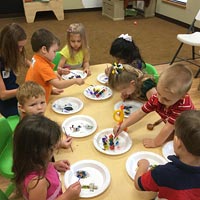 Reasons You May Not Be Eligible
Reasons You May Not Be Eligible Childcare in Willesden, near Willesden Green, Harlesden & Kensal Green, NW10
Childcare in Willesden, near Willesden Green, Harlesden & Kensal Green, NW10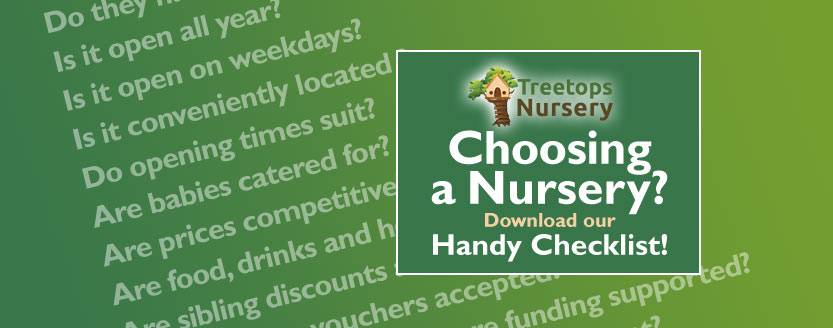
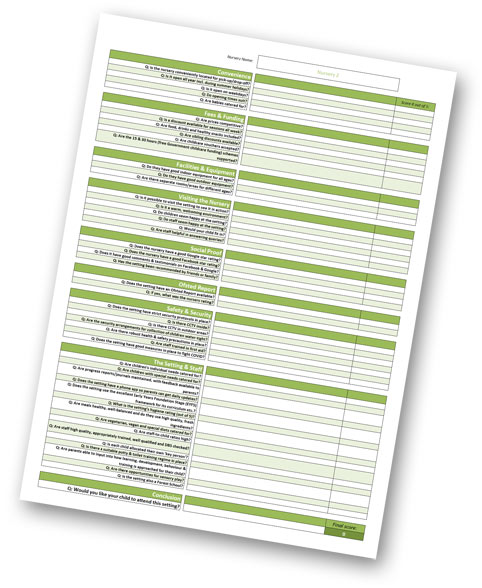
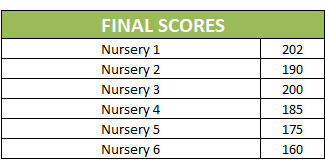 We’ve split the handy checklist into a handful of appropriate sections. Sections covered include location, convenience, fees, whether the nurseries accept Government-funded childcare schemes or vouchers, what’s included in the price, facilities and equipment, an appraisal of the nursery itself and staff,
We’ve split the handy checklist into a handful of appropriate sections. Sections covered include location, convenience, fees, whether the nurseries accept Government-funded childcare schemes or vouchers, what’s included in the price, facilities and equipment, an appraisal of the nursery itself and staff, 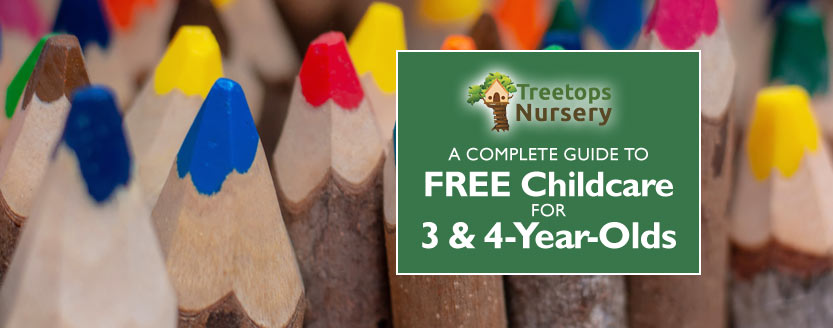

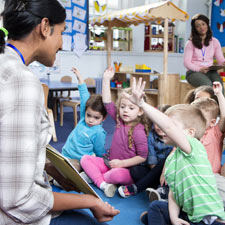
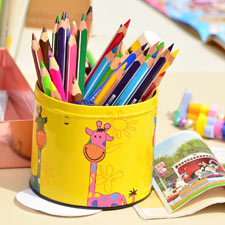 claiming Universal Credit, tax credits³ or Tax-Free Childcare;
claiming Universal Credit, tax credits³ or Tax-Free Childcare;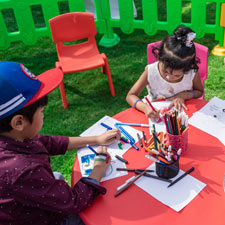
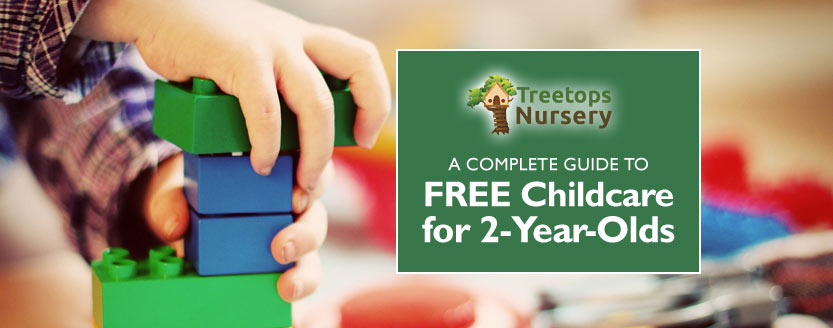
 Have you heard about the free childcare funding that’s available for eligible 2-year-olds? Do you want to learn more? If you are a parent who is looking to work, or perhaps to get back into work after starting a family, then this could be a perfect solution for you and your toddler. Under a Government scheme, approved nurseries, pre-schools and childcare providers in England can supply up to 15 hours per week of childcare for eligible 2-year-olds. It’s an absolute no-brainer, so we thought we’d put together this comprehensive guide to tell you everything you need to know.
Have you heard about the free childcare funding that’s available for eligible 2-year-olds? Do you want to learn more? If you are a parent who is looking to work, or perhaps to get back into work after starting a family, then this could be a perfect solution for you and your toddler. Under a Government scheme, approved nurseries, pre-schools and childcare providers in England can supply up to 15 hours per week of childcare for eligible 2-year-olds. It’s an absolute no-brainer, so we thought we’d put together this comprehensive guide to tell you everything you need to know.
